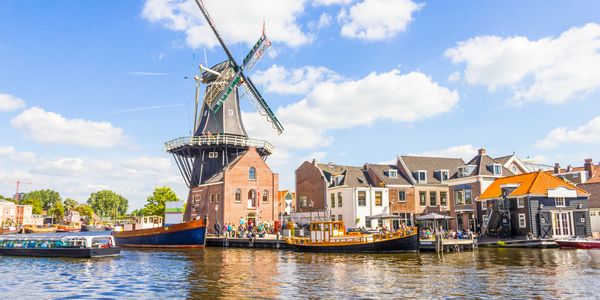Via Jersey City: An On-Demand Public Transit Solution
Customer Company Size
Large Corporate
Region
- America
Country
- United States
Product
- Via Jersey City
- Mercedes Metris Vans
- Kia Niro Electric SUVs
Tech Stack
- On-Demand Transit Platform
- Electric Vehicles
Implementation Scale
- Enterprise-wide Deployment
Impact Metrics
- Cost Savings
- Environmental Impact Reduction
- Customer Satisfaction
Technology Category
- Functional Applications - Fleet Management Systems (FMS)
- Networks & Connectivity - Cellular
Applicable Industries
- Transportation
- Cities & Municipalities
Applicable Functions
- Logistics & Transportation
- Business Operation
Use Cases
- Fleet Management
- Public Transportation Management
- Smart City Operations
Services
- Software Design & Engineering Services
- System Integration
About The Customer
Jersey City, located in New Jersey, is a bustling urban area with a diverse population. The city has been proactive in addressing its public transportation needs, especially in underserved neighborhoods. The local government, led by Mayor Steven Fulop, has been keen on improving mobility and accessibility for its residents. Jersey City has a mix of commuters, residents, seniors, and students who rely on public transit for their daily activities. The city has been working closely with various stakeholders, including ward leaders and city transit planners, to design and implement effective transportation solutions.
The Challenge
After the regional transit authority canceled key bus routes in two neighborhoods already underserved by fixed route transit, Jersey City took its transportation needs into its own hands. The city aimed to improve mobility and complement existing transit options. The challenge was to provide a comprehensive public transit solution that could serve commuting and other trips, especially in areas with limited fixed route services. The goal was to create a city-controlled, on-demand public transit system that could offer greater connectivity to light rails and major downtown employment centers.
The Solution
Via Jersey City was launched in February 2020 with a fleet that included electric vehicles, reflecting a commitment to sustainable transport. The service was designed to fit seamlessly into the existing transit ecosystem with a fare of $2, comparable to the city bus. The innovative service model allowed riders to book trips to or from central wards but not within them, ensuring that the service complemented existing transit options like PATH, light rail, and bus routes. In response to growing demand and social distancing requirements amid the global pandemic, the service expanded in September 2020 by almost doubling its fleet size. The service zone covered 15 square miles, and the fleet included 24 Mercedes Metris vans and 2 Kia Niro electric SUVs. The service operated from 6 AM to 10 PM on weekdays, catering to a diverse rider cohort including commuters, residents, seniors, and students.
Operational Impact
Quantitative Benefit

Case Study missing?
Start adding your own!
Register with your work email and create a new case study profile for your business.
Related Case Studies.

Case Study
Turning A Stadium Into A Smart Building
Honeywell created what it called the “intelligent system” for the National Stadium in Beijing, China, turning the venue for the opening and closing events at the 2008 Summer Olympics into a “smart building.” Designed by highly controversial artist Ai Weiwei, the “Bird’s Nest” remains one of the most impressive feats of stadium architecture in the world. The 250,000 square meter structure housed more than 100,000 athletes and spectators at a time. To accommodate such capacity, China turned to Honeywell’s EBI Integrated Building Management System to create an integrated “intelligent system” for improved building security, safety and energy efficiency.
.png)
Case Study
Smart Street Light Network (Copenhagen)
Key stakeholders are taking a comprehensive approach to rethinking smart city innovation. City leaders have collaborated through partnerships involving government, research institutions and solution providers. The Copenhagen Solutions Lab is one of the leading organizations at the forefront of this movement. By bringing together manufacturers with municipal buyers, the Copenhagen Solutions Lab has catalyzed the development and deployment of next-generation smart city innovations. Copenhagen is leveraging this unique approach to accelerate the implementation of smart city solutions. One of the primary focus areas is LED street lighting.

Case Study
Airport SCADA Systems Improve Service Levels
Modern airports are one of the busiest environments on Earth and rely on process automation equipment to ensure service operators achieve their KPIs. Increasingly airport SCADA systems are being used to control all aspects of the operation and associated facilities. This is because unplanned system downtime can cost dearly, both in terms of reduced revenues and the associated loss of customer satisfaction due to inevitable travel inconvenience and disruption.

Case Study
IoT-based Fleet Intelligence Innovation
Speed to market is precious for DRVR, a rapidly growing start-up company. With a business model dependent on reliable mobile data, managers were spending their lives trying to negotiate data roaming deals with mobile network operators in different countries. And, even then, service quality was a constant concern.

Case Study
Buoy Status Monitoring with LoRa
The Netherlands are well-known for their inland waterways, canals, sluices and of course port activities. The Dutch Ministry of Infrastructure indicates that there are thousands of buoys and fixed items in and near water environments that would profit from IoT monitoring. One of the problems with buoys for example, is that they get hit by ships and the anchor cable breaks. Without connectivity, it takes quite some time to find out that something has happened with that buoy. Not to mention the costs of renting a boat to go to the buoy to fix it. Another important issue, is that there is no real-time monitoring of the buoys at this moment. Only by physically visiting the object on the water, one gains insight in its status.



